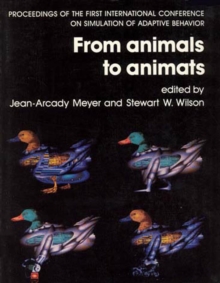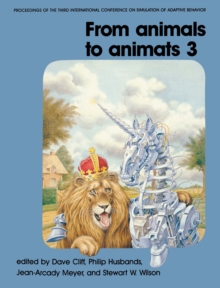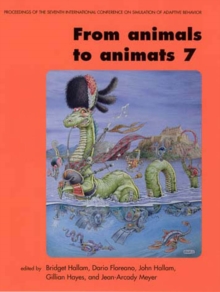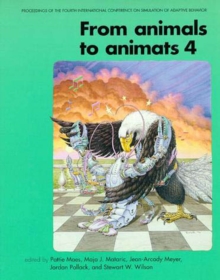
Comparative Approaches to Cognitive Science Paperback
Edited by Herbert L. (Dr.) Roitblat, Jean-Arcady (Espinet) Meyer
Part of the Complex Adaptive Systems series
Paperback
Description
The book includes considerations of the perceptual and motor abilities of animals as the evolutionary and conceptual foundation of more complex abilities; modeling focused as much on connections and constraints as on language and symbols; an interest in simple adaptive processes in animals and robots as the basis for more complex forms of learning and adaptation; and a consideration of animals and robots as integrated and situated systems in contrast to the reductionist and environment-free frameworks often seen in standard cognitive science. Comparative Approaches to Cognitive Science consolidates a series of recent advances in cognitive science, describing a novel, animal-based, largely nonsymbolic approach to understanding basic mechanisms in adaptive intelligence.
Scholars who are at the cutting edge of their disciplines clearly explain their concepts and techniques in twenty contributions that provide a balance of both theoretical and empirical approaches. The essays are tied together by the idea that our understanding of cognition is likely to be enhanced by consideration of mechanisms and processes at its foundation-mechanisms that are shared by both human and nonhuman animals-and which may be implemented and tested in some simulated animals or built robots. The themes described in the book include considerations of the perceptual and motor abilities of animals as the evolutionary and conceptual foundation of more complex abilities; modeling focused as much on connections and constraints as on language and symbols; an interest in simple adaptive processes in animals and robots as the basis for more complex forms of learning and adaptation; and a consideration of animals and robots asintegrated and situated systems in contrast to the reductionist and environment-free frameworks often seen in standard cognitive science.
A part of the book considers the question of intentionality in animals-whether they "know they know," or have beliefs-and how that might implicate behavior.
Other sections address how representation, communication, motivation, and emotion affect behavior. Contributors C. Allen, M. Bekoff, M.A. Boden, W.T. Bourbon, G. Butterworth, P.W. Cheng, J. Delacour, D.C. Dennett, M. Dyer, C.S. Evans, N. Frijda, J.P. Halperin, K.J. Holyoak, P. Marler, D. MacFarland, B.W. Mel, J.-A. Meyer, J. Neiworth, H.L. Roitblat, C. Thinus-Blanc, R.K.R. Thompson, F. Toates
Information
-
Item not Available
- Format:Paperback
- Pages:544 pages
- Publisher:MIT Press Ltd
- Publication Date:14/12/1995
- Category:
- ISBN:9780262519953
Information
-
Item not Available
- Format:Paperback
- Pages:544 pages
- Publisher:MIT Press Ltd
- Publication Date:14/12/1995
- Category:
- ISBN:9780262519953










